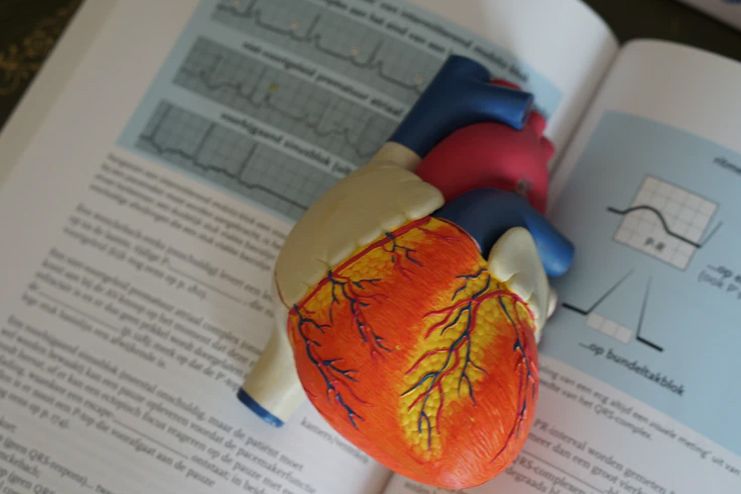Affiliate Disclaimer
Some links in this article are affiliate links. We may earn a small commission if you make a purchase through these links, at no extra cost to you. We only recommend products we find useful to our readersIf you have been struggling with the risks of cardiovascular issues, we would suggest having an eye out on any misplaced symptom that you have been experiencing persistently. Knowing of the warning signs a month before heart attack can effectively help you avert the worst.
Heart attacks can not just cost you your life but can also end up disabling the body, depending on the severity of the attack. This is the reason why even taking the minor symptoms for granted does no good to your body in the long run.
In here, we are going to highlight some of the ways one month before a heart attack your body will warn you so you are prepared to abstain that from happening.
Signs of a heart attack a month before


For those who aren’t aware what a heart attack means and tend to confuse that with cardiac arrest, let us walk you through the difference first.
A heart attack happens when there is a blockage in an artery supplying blood to the heart muscles.
Cardiac arrest, on the other hand, is a condition which is characterized by the sudden stoppage in the heart function, regular breathing as well as the consciousness of an individual as well.
Cardiac arrest tends to happen in the moment and can be very tough to symptomise.
A heart attack is a process in the making whose symptoms you are likely going to experience a month before it is likely to happen. The only issue is the fact that we don’t take the symptoms seriously.
Read: 15 Signs You’re Not Taking Care Of Yourself – It’s The Small Things!
Some of the common warning signs a month before heart attack include:
1. Constant fatigue

The issue is that if you are an energetic person normally and you start experiencing signs of fatigue suddenly, it is likely that something is not right with your body.
Don’t jump into straight conclusions thinking that sudden fatigue means a heart attack (R) is going to happen. That is not how it works.
If you find yourself feeling tired constantly even after doing some of the most trivial tasks, chances are that the body is undergoing some kind of underlying issue that could be drawing out the energy from the body.
2. Abdominal pain

If you are wondering why it could happen, there is no particular reason behind the same.
For those who have been experiencing an on and off abdominal pain (R) for the past month without any possible explanation, it is better that you do see a doctor before things do get out of hand.
Some other abdominal issues that you are likely going to experience include constant bloating, nausea and other accessory issues.
Read: Causes, Symptoms, Treatment and Prevention of Upper Abdominal Pain
3. Chest Pain

This is possibly a very regular symptom which both men and women experience who is at a risk of having a heart attack.
The pain around the chest is not just sharp shooting pains but a constant tightness and discomfort that you are likely going to experience.
But, there have been reports that women are less likely to experience this symptom and can experience the heart attack either ways.
Read:10 Home Remedies For Heart Palpitations – Get Your Heart Rate In Check
4. Insomnia

The sign of insomnia as one of the symptoms a month before heart attack affects around 50% of women across.
It is believed that the irregular blood transport in and out of the heart is one of the reasons behind the unrest and the constant feeling of anxiousness in the body, making one feel drained and unable to sleep through the night.
There are not many scientific evidences showing why it could be exactly happening, which is a haze. Some of the accessory symptoms that you are likely to experience include lack of sleep through the night, waking up early in the morning and even finding difficulty in initiating sleep at night.
Read: 12 Breathing Techniques For Sleep To Drive Insomnia Away
5. Shortness of breath

The feeling of breathlessness is a sign that your heart isn’t pumping the blood as efficiently (R) as it should be. It is tough for you to think that every shortness of breath could be a sign of a possible heart attack but to be fair, which is not necessarily the case.
If you have been experiencing out the box symptoms and something that doesn’t sit right with your mind, especially when you are out of breath from walking a few steps, it is likely that something is wrong.
This kind of symptom has been witnessed in around 40% of the case of heart attacks, making it an important warning sign for you to focus and emphasise on. This, paired with constant fatigue is considered one of the most common warning signs a month before heart attack.
Read: 12 Ways To Stop Panic Attack – Know How To Tame The Demons Inside
6. Uncontrolled sweating


Keep in mind that we aren’t talking about the general sweating cycle that you have. This includes as the symptom wherein you sweat unusually and that too in situations that you aren’t supposed too.
Take it for an example, for someone who is in a room with an air conditioner on, sweating is not likely. But, there have been reports that some people who have been on the risks of getting a heart attack might sweat under such circumstances too.
This is mainly because of the high blood pressure because of any kind of blockage around the heart or the clots in the vascular system in the body.
If you find that your sweating is paired with shortness of breath and a constant discomfort around your chest region, it is likely that you might experience a heart attack shortly.
Read: Everything You Want to Know About Excessive Sweating
7. Hair loss

This condition is likely to affect men who have crossed their 50s.
Even though there aren’t a lot of reasons as to why it could happen, it is believed that the high levels of cortisol in the body (R) could be a possible reason behind the said condition.
Higher stress contribute to higher levels of cortisol which has been found to hinder with the heart functions and later contribute to the unnecessary bout of baldness as well.
Read: 45 Must Try Natural Remedies For Hair Growth
8. Irregular heart beat

Any kind of arrhythmia is not good for your well being, be it the heightened rhythm or the labored one.
If your heart is not functioning properly, chances are that you will experiences irregular heart rates that last for a minute or two before it again goes back to normal.
If you find that the condition persists and is contributing to an irregular health, that is when you need to intervene and see a doctor to get the symptoms checked out.
Read: Further Understanding Of Irregular Heartbeat To Pave Way For Treatments
9. Weakness

If you have been experience dizziness and constant need to sleep and rest, which is unlike you, it could be a possible sign of a heart attack.
If you find the symptoms persistent, we would suggest that you do see a doctor for safe side.
10. Labored stomach health

It is likely not a very strong warning sign of a heart attack but given how serious the situation is, it is likely that you should not take this for granted and find better ways to cope with the situation.
Gut health plays a very crucial role in the whole body functions, which is the reason why taking proper care of it is a necessity over anything else.
If you have been experiencing signs of indigestion, nausea or vomiting, we would suggest seeing a doctor before the situation becomes worse.
How can you minimize the risks of a heart attack?

It is very important that one assesses the signs of a heart attack a month before and implements preventative measures to keep their health in check.
To help you lead a healthier life, we have sorted out some of the important preventive measures.
1. Lead an active lifestyle

In order for our organs to function seamlessly, it is necessary that we work out to prevent the unnecessary fat depositions which enhance the risks of blood clots and blockage in the arteries, further leading to the risks of heart attacks.
Read: A 5 Minute Workout Can Be The Answer To Better Brain Function, New Study Suggests
2. Eat a healthy diet

Instead, it is important that one consumes food that helps promote heart health. Healthy omega-3 fatty acids impose amazing benefits on the heart health and can boost the overall functioning as well.
Read: How To Choose A Diet Plan? Ask Yourselves These 12 Questions First
3. Avoid smoking and alcohol

One of the best ways to handle the situation is by ensuring that you completely avoid smoking and drinking alcohol as well.
Alcohol has also been found to interfere with the normal heart functions, enhancing the risks of an attack, which is why it is best that you do avoid it for good.
Read: Want to Quit Smoking – Follow These Tips
4. Manage your stress levels

Cortisol has vasoconstricting properties which enhances the blood pressure, further contributing to the heightened risks of heart attack.
If you want to prevent the risks, it is best suggested that you do handle your stress first.
Read: Amazing Tips on Reducing Stress
5. See a doctor every now and then

One of the best ways to prevent a heart attack is by consulting a doctor when you start witnessing the warning signs and symptoms.
These help reduce the risks and also promote better well being in the long run.
If you have been experiencing the warning signs a month before heart attack, don’t take it lightly. It is necessary that you seek immediate medical assistance, even if it’s for you to rule out the risks. Make sure that you sort through the symptoms that we have mentioned above and check for yourself whether you have been experiencing the same or not.































